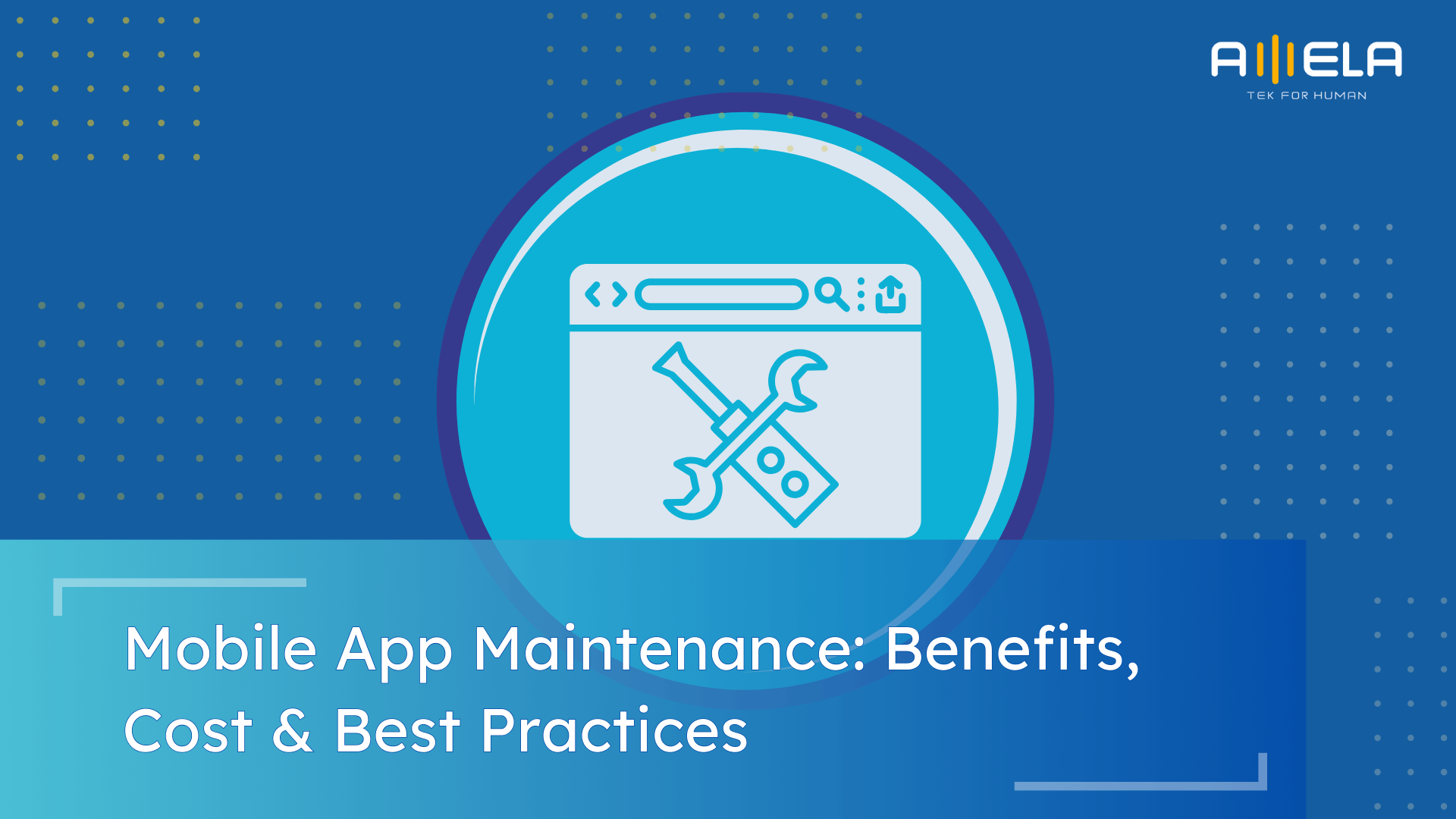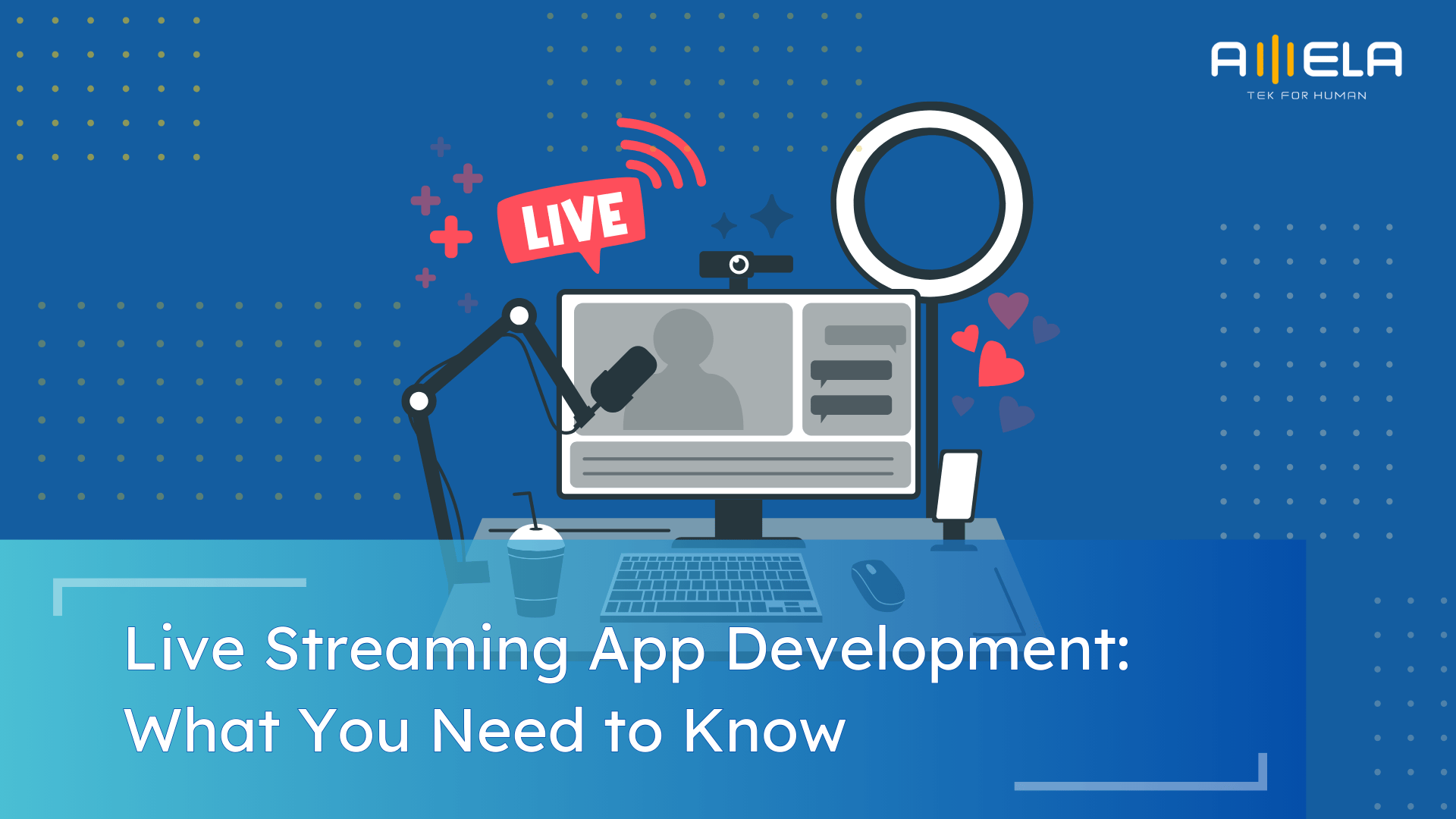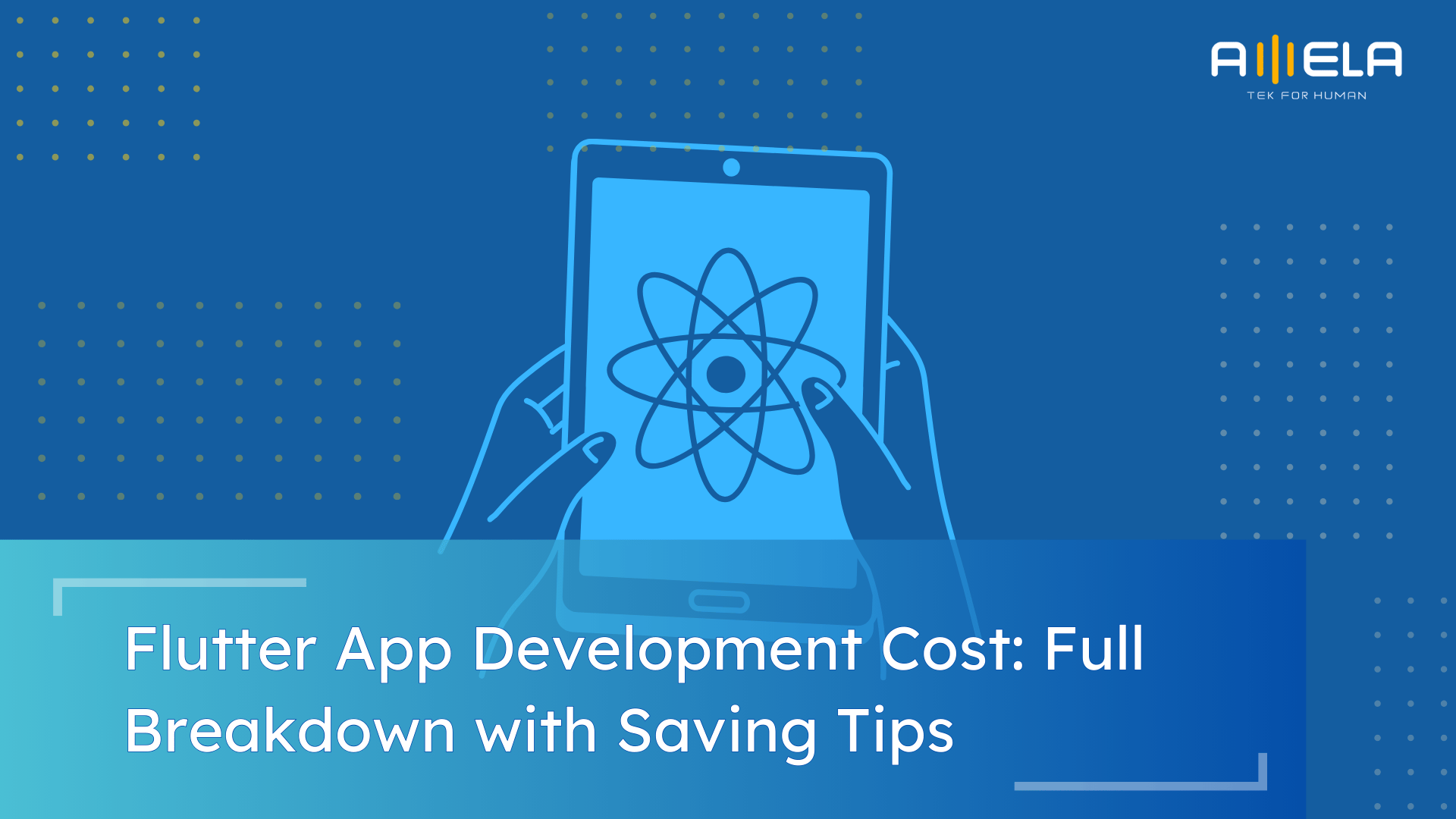Table of Contents
In today’s competitive food and beverage (FnB) industry, a restaurant mobile app development strategy is essential. Customers prefer ordering food through mobile apps because of the convenience and speed they offer. Developing an app for your restaurant will help you stay ahead in the digital transformation wave. This guide will help you navigate through the restaurant app development process, explore the benefits, and understand how to choose the right developers.
Mobile apps have become a core part of customer engagement in the FnB industry. By creating an app, restaurants can streamline operations and improve customer satisfaction. This article will provide a detailed, step-by-step guide to developing your restaurant app.
What Is Restaurant Mobile App Development?
To put it simply, mobile app development for restaurants is all about turning restaurants’ daily hustle — ordering, serving, delivering — into smooth, digital experiences on your phone.
We’ve worked with a few restaurant clients before, and trust me, once you’ve seen how tech can cut chaos in the kitchen, you’ll never go back. Instead of messy handwritten orders or constant phone calls, everything just flows — customers order, chefs get instant updates, and managers track it all in real time.
It’s not just about building “an app.” It’s about connecting every part of the restaurant — from the kitchen to the customer’s pocket. When done right, it saves time, reduces errors, and keeps diners coming back.
Why Create Mobile Apps for Restaurants?
Customers want to order in seconds, track deliveries live, and feel recognized every time they come back. That’s where a food ordering mobile app makes all the difference. From what we’ve seen working with restaurants (both local brands and chain franchises), the benefits go far beyond just “going digital.”
Here’s why having your own app is a game changer:
-
It builds direct relationships with customers.
Forget relying on third-party delivery platforms that eat up your profit margins. With restaurant app development, you own the customer data — you know who’s ordering, how often, and what they love. That means smarter marketing and higher loyalty.
-
It keeps operations running like clockwork.
When the kitchen, cashier, and delivery teams are synced in one system, mistakes drop dramatically. No more “wait, did that order go out?” moments. You can see everything in real time, and that transparency alone is gold.
-
It turns occasional diners into loyal fans.
Loyalty programs, push notifications, and personalized discounts can work wonders. Imagine sending a quick “Your favorite ramen is 20% off today” alert — that’s how you win repeat business.
-
It gives you full control over the brand experience.
On delivery apps, your restaurant is just one logo among hundreds. But on your own app, you control the design, tone, photos, and customer journey — from the splash screen to the thank-you message.
-
It opens doors to smarter decision-making.
With all sales, orders, and reviews tracked in one place, you get real-time insights. You’ll see which menu items are hits, which hours bring the most orders, and when to push promotions. It’s like having a business analyst baked into your app.
-
It helps you scale faster.
Whether you’re opening new branches or expanding delivery zones, a well-built app grows with you. Add new stores, new items, or new features to your restaurant application development process without starting from scratch.

Restaurant App Development Guide: How to Get Started?
So, you’ve decided it’s time for your food beverage app development — awesome move. But here’s the truth: jumping straight into development without a clear plan is like opening a restaurant without a menu. You’ll waste time, money, and a few too many late-night calls with your tech team.
From our experience building apps for restaurants and food chains, here’s how you should really get started:
Define what problems you want to solve first.
Don’t begin with “I want an app.” Start with why.
Do you want to reduce delivery delays? Build customer loyalty? Cut dependency on third-party platforms? Your “why” will shape every feature and function of your app. The clearer you are, the smoother the process.
Understand your customers’ habits.
Your customers decide how your app succeeds — not you. Watch how they order now. Do they prefer delivery or pickup? Do they reorder the same meal every Friday night? These patterns help you design features they’ll actually use, not just nice-to-haves.
Choose the right restaurant mobile app development partner.
Here’s where most restaurant owners trip up — they hire generic app agencies that don’t understand restaurant workflows. You want a tech partner who’s been in the kitchen, literally and figuratively.
At AMELA, we usually start with a discovery workshop to understand the restaurant’s daily pain points before writing a single line of code. That’s what separates a good app from a one-hit wonder.
Start small — then scale.
You don’t need to build a massive platform from day one. Begin with a Minimum Viable Product (MVP) — maybe just digital ordering and payment — then expand to table booking, loyalty, or delivery tracking once users start engaging.
Think of it like perfecting your signature dish before expanding the menu.
Prioritize a smooth, branded user experience.
Your app isn’t just a tool — it’s an extension of your restaurant’s vibe.
If your restaurant is cozy and premium, your app should feel the same. Consistent design, fast load times, and simple navigation all matter more than flashy animations.
Plan for maintenance and marketing early.
Even the best app fails if no one knows about it. Set aside budget and time for app updates, bug fixes, and promotions — maybe even offer a discount for first-time app orders. Small moves like that can drive massive adoption.
>>> Related: App Development Cost: A Detail Breakdown
Different Ways to Build a Restaurant App
Once you decide to build a food & beverage ordering app, the next big question is how to make it happen. From working with restaurant owners across Asia, Japan, and Australia, we’ve seen four main paths — each with its own strengths, trade-offs, and cost range.
Below is a practical breakdown from our experience building food delivery, reservation, and loyalty apps.
Outsourcing to a Software Development Company
This is one of the most common paths restaurant owners take — and honestly, it’s the one we recommend most often. You partner with an experienced mobile app development company like AMELA, share your business goals, and they handle the technical execution from design to deployment.
Pros:
-
Full team, zero hiring pain: You instantly get access to developers, designers, QA testers, and project managers — all working as one team.
-
Speed to market: Development partners already have reusable frameworks and libraries that can save weeks of build time.
-
End-to-end support: From app design and backend setup to app store deployment, everything’s handled by one vendor.
-
Predictable cost: Clear milestones and fixed pricing models help manage your budget more easily.
-
Scalability: As your restaurant grows, the same team can keep expanding your app with new features or modules.
Cons:
-
Less day-to-day control than managing your own dev team.
-
Requires clear communication to keep alignment — but that’s easily solved with weekly syncs and transparent project tracking tools.
Typical Cost Range:
-
Hourly rate: $25–$45/hour (Vietnam-based teams) vs. $80–$150/hour (US or EU vendors).
-
MVP project: $15,000–$40,000 depending on complexity (e.g., order management, delivery tracking, loyalty).
-
Full-scale app: $60,000–$120,000 for multi-branch systems or advanced integrations.
If you’re not running a tech department internally, outsourcing is your best bet. It’s faster, more cost-effective, and you get real professionals who’ve already solved the exact challenges you’re about to face.
Hiring Restaurant Mobile App Developers
Another option is hiring your own app developers — either building an internal team or working with a dedicated developer model through a partner company.
We’ve seen both approaches work, but the key difference lies in control and cost.
1. Hiring In-House:
You hire full-time developers, designers, and testers who work exclusively for your restaurant brand. This gives you total control — but it’s a long-term play.
Pros:
-
Full ownership of every decision and line of code.
-
Perfect for restaurant chains planning multiple systems (CRM, POS, internal management).
-
Easy to adjust priorities anytime without waiting on external approvals.
Cons:
-
Recruitment is tough — good mobile devs are expensive and in high demand.
-
Salaries, benefits, and retention add up fast.
-
Longer time to market (3–6 months just to set up a capable team).
Typical Cost Range:
-
Developer salaries: $3,000–$8,000/month per developer depending on region and skill.
-
Annual team cost: Around $100,000–$250,000 for a 3–4 person team (including designer and QA).
2. Hiring Dedicated Developers (via Partner):
This model is a hybrid — you don’t need to build a full tech team internally for your Restaurant Mobile App Development project, but you get long-term dedicated developers who work as if they’re part of your company. It’s one of the most flexible and cost-efficient models we’ve seen.
Pros:
-
Direct control — you manage tasks, timelines, and feedback daily.
-
Cost savings — hourly rates are much lower than full in-house hires.
-
Easy to scale up or down based on project phase.
-
Consistent quality — same devs stay with your project long-term, so knowledge isn’t lost.
Typical Cost Range:
-
Hourly rate: $15–$35/hour (experienced offshore devs, like those at AMELA).
-
Monthly cost per dev: $3,000–$6,000 depending on skill level and role (frontend, backend, full stack).
Hiring expert restaurant app developers gives you the best of both worlds — control and expertise without the overhead. It’s ideal for restaurants planning continuous digital expansion (like loyalty programs, new ordering features, or multi-branch dashboards).
Using No-Code or Low-Code Platforms
For smaller restaurants or café owners, no-code food ordering mobile apps can be a starting point. You use drag-and-drop tools to build a simple restaurant app without coding.
Pros:
-
Quick setup — sometimes live within weeks.
-
Low upfront investment.
-
Great for testing whether customers will actually use your app.
Cons:
-
You’ll hit limits quickly. Complex features like dynamic pricing, inventory sync, or multi-branch management often can’t be done.
-
Migration to custom code later can be messy.
-
Monthly fees stack up as users grow.
Cost Estimate:
-
Setup: $1,000–$3,000
-
Ongoing: $100–$500/month depending on features
This is good for MVPs or small-scale experiments, but if you plan to scale, invest in proper development from the start.
White-Label Restaurant Mobile App Solutions
These are pre-built food mobile app development platforms you can rebrand with your logo and name.
Pros:
-
Fast to launch (2–4 weeks).
-
Lower upfront cost than custom builds.
-
Works well for standard delivery or order apps.
Cons:
-
Limited customization; your app might look exactly like your competitors’.
-
Reliant on vendor for updates and bug fixes.
-
Not ideal for long-term growth.
Cost Estimate:
-
Setup: $5,000–$15,000
-
Maintenance: $500–$1,000/month
It’s a decent short-term fix, but not a long-term solution if you want a truly branded experience or advanced integrations.
Best Restaurant Mobile Apps Case Studies
Below, we’ll look at two standout examples of restaurant mobile app development — Starbucks and Domino’s — brands that turned mobile apps into powerful growth engines.
Case Study 1: Starbucks Mobile App – Redefining Customer Loyalty
Starbucks didn’t just build an app; they built a whole digital experience around loyalty, convenience, and personalization. Their Mobile Order & Pay feature turned morning coffee runs into seamless digital rituals, letting customers order ahead, skip the line, and pay cash-free.
Over the years, Starbucks expanded its app into a full ecosystem — blending ordering, payment, and rewards. The app now handles millions of transactions daily and has become a benchmark for loyalty-driven food apps.
What makes it stand out:
-
Integrated loyalty system: Customers earn and redeem points (“Stars”) directly through mobile purchases.
-
AI-powered personalization: Tailored drink suggestions based on purchase history.
-
Offline-friendly design: Built as a hybrid native + PWA model, letting users browse and order even on weak connections.
-
Frictionless payment: The Starbucks Card creates a closed-loop system where users preload funds — boosting repeat sales.
While Starbucks hasn’t revealed its exact development cost, the scale and sophistication suggest a multi-million dollar, in-house–plus–partner approach refined over years.
Lesson learned: Build an app that goes beyond transactions. Loyalty and data personalization keep customers coming back long after the first download.
Case Study 2: Domino’s App – Turning Pizza into a Tech Business
Domino’s is often called a “tech company that sells pizza,” and their app is proof of that. Instead of sticking to a basic order-and-deliver model, Domino’s invested heavily in innovation and usability — partnering with development agency Apadmi to redesign their UK and global apps.
Outstanding features:
-
Pinpoint Delivery: Customers can drop a pin anywhere on the map — no address required.
-
Real-Time Order Tracker: Live updates from oven to doorstep increase transparency and trust.
-
Group Ordering & In-Car Collection: Smart convenience features for families and commuters.
-
Payment integrations: Google Pay and Apple Pay for instant checkout.
These upgrades significantly improved conversions and reduced cart abandonment rates. Although no official cost was disclosed, public sources confirm Domino’s outsourced key phases to experienced mobile development partners.
Lesson learned: For food brands, great UX and reliable real-time features can directly impact order volume and customer satisfaction.
FAQs
What types of restaurant mobile apps can I build?
There are several, depending on your business model:
-
Food delivery apps: let customers order and track deliveries.
-
On-table ordering apps: allow diners to browse menus and order directly from their table.
-
Reservation apps: manage bookings and reduce waiting time.
-
Loyalty or rewards apps: keep customers returning with discounts and points.
-
Multi-branch or franchise apps: centralize menus, orders, and analytics across all locations.
Each type solves a different pain point — choose the one that matches how your restaurant operates today.
How long does restaurant mobile app development take?
A simple ordering app with basic features takes around 8–12 weeks. If you’re building a fully custom platform — with delivery management, loyalty programs, or multi-branch support — expect 4–6 months for development and testing.
The best approach? Launch an MVP first, gather feedback, and then expand.
What are the biggest challenges when developing a restaurant mobile app?
From our experience, the hardest part isn’t just building the app — it’s making it work smoothly with your real operations. Syncing menu updates, POS systems, and delivery tracking often causes unexpected complexity. Another big hurdle is keeping user experience fast and intuitive, especially when multiple locations, offers, and payment methods are involved.
Tip: Start with a clear system map before writing a single line of code. It saves weeks later.
Should I build food apps for Android or iOS first?
We usually recommend starting with Android app development, especially in markets like Southeast Asia where most users are on Android devices. But if your main customers are in premium urban areas or abroad, an iOS-first approach might make sense.
For long-term growth, cross-platform frameworks like Flutter or React Native allow you to support both efficiently.
What mistakes should I avoid when developing a restaurant app?
A few common ones we see often:
-
Adding too many features too soon — users just want simple ordering that works.
-
Ignoring staff workflows — if the kitchen team can’t follow the system easily, it breaks fast.
-
Skipping testing — bugs in payment or delivery tracking can instantly lose customer trust.
-
Not planning maintenance — post-launch updates are essential to keep things stable.
Conclusion
Investing in restaurant mobile app development is essential for restaurants seeking to stay competitive in today’s market. A well-designed app can increase customer engagement, improve operational efficiency, and boost sales. Working with expert restaurant mobile app developers ensures that your app is built to meet your specific business needs.
At AMELA Technology, we specialize in mobile app development for various industries, including the food and beverage sector. We offer dedicated team services and staff augmentation to help businesses build the best possible app, ensuring quality, scalability, and cost-effectiveness. Partner with AMELA to take your food and beverage app development to the next level and drive business success.

 Mar 19, 2025
Mar 19, 2025 




